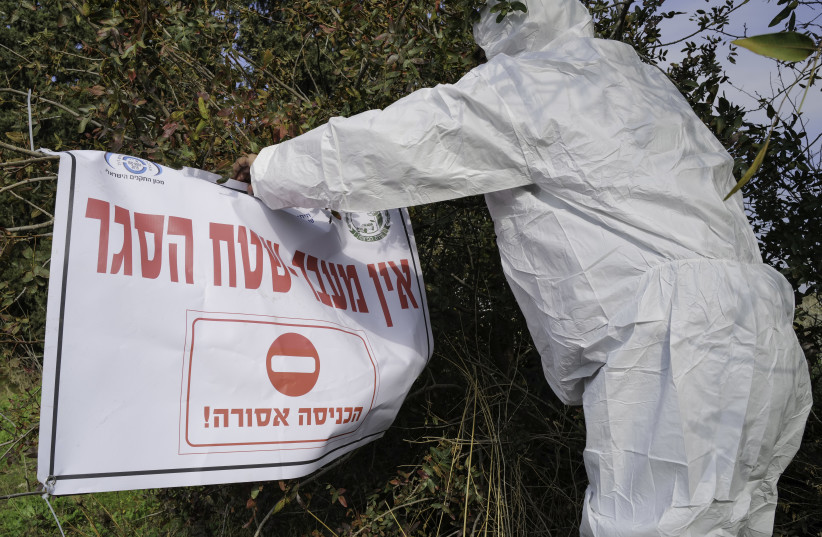Environmental Protection Minister Tamar Zandberg on Monday signed an order banning Israel's hunting season in order to stem the ongoing severe outbreak of avian influenza (bird flu) in the country.
"The high mortality of cranes and other birds found to be infected with avian flu indicates a serious and unusual outbreak, and we must act immediately to minimize contact between wild birds and humans, and prevent further spread; banning hunting during the current season is necessary," Zandberg said in a statement.
"The move will prevent the continued spread of avian flu, while keeping hunters safe from the dangerous and contagious disease.”
The outbreak of H5N1 bird flu in Israel has triggered a state of emergency after multiple cases were detected.
On December 25, the discovery of the virus in chicken coops near Margaliot led to the killing of 320,000 hens after 244,000 hens were killed in a separate outbreak earlier that week.
On Monday, around 42,000 turkeys were reportedly infected in the town of Nahalal in the North. In Gadish, around 7,400 chickens were found to be infected, as were around 14,000 turkeys in Ne'ot Golan.
The outbreak has raised fears of it getting worse and that a possible egg shortage could happen in the near future. Fears were also raised due to the arrival of tens of thousands of migratory cranes to the Hula Valley. Bird flu is already estimated to have cost the lives of thousands of migratory cranes since it arrived and has already cropped up in other parts of the country.
“This is an infection event of a magnitude we have not experienced here before,” said Agriculture Minister Oded Forer on Sunday.
Israel's hunting season kicks off every year in September and lasts four months, with hunters typically hunting birds.
Though there are only around 2,000 licensed hunters in Israel, hundreds of thousands of birds are often killed during the hunting season.
However, hunting wild birds could risk a possible zoonotic disease transmission, meaning a disease could jump from animals to humans. This is how the COVID-19 pandemic is widely believed to have started.
"Although the bird flu is adapted mainly to poultry, under certain conditions it is capable of infecting animals such as cats, weasels and pigs – and in exceptional cases, humans," Nature and Parks Authority Director-General Raya Soraki said.
The Society for the Protection of Nature in Israel (SPNI) lauded Zandberg's "good and timely" decision to stop the hunting season. They had asked her to ban it for an entire year, rather than just until the end of the current one, until the bird flu is better understood, but this was declined.
"We're in the midst of a national crisis and need to take all possible measures," SPNI's Israel Ornithological Center director Dr. Yoav Pearlman said.
"Hunting can considerably contribute to the spread of infected birds around the country. When hunters approach areas, especially wetlands, birds disperse in all directions. Infected birds can then spread from one area to another and on and on," he said.
"Further, the hunters come and target ducks and other waterfowl, which are exposed to bird flu and have high infection rates. As many hunters tend to eat what they hunt, there is, therefore, a risk that humans could be infected by eating these birds."

